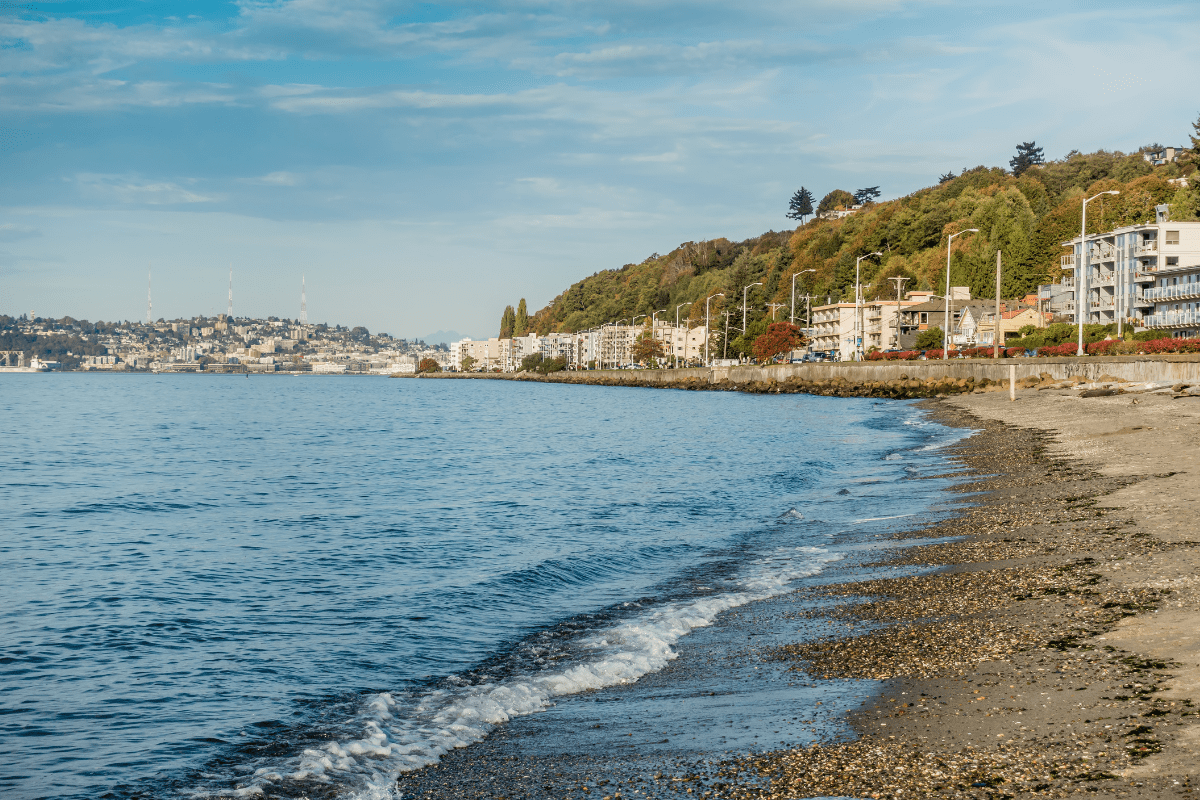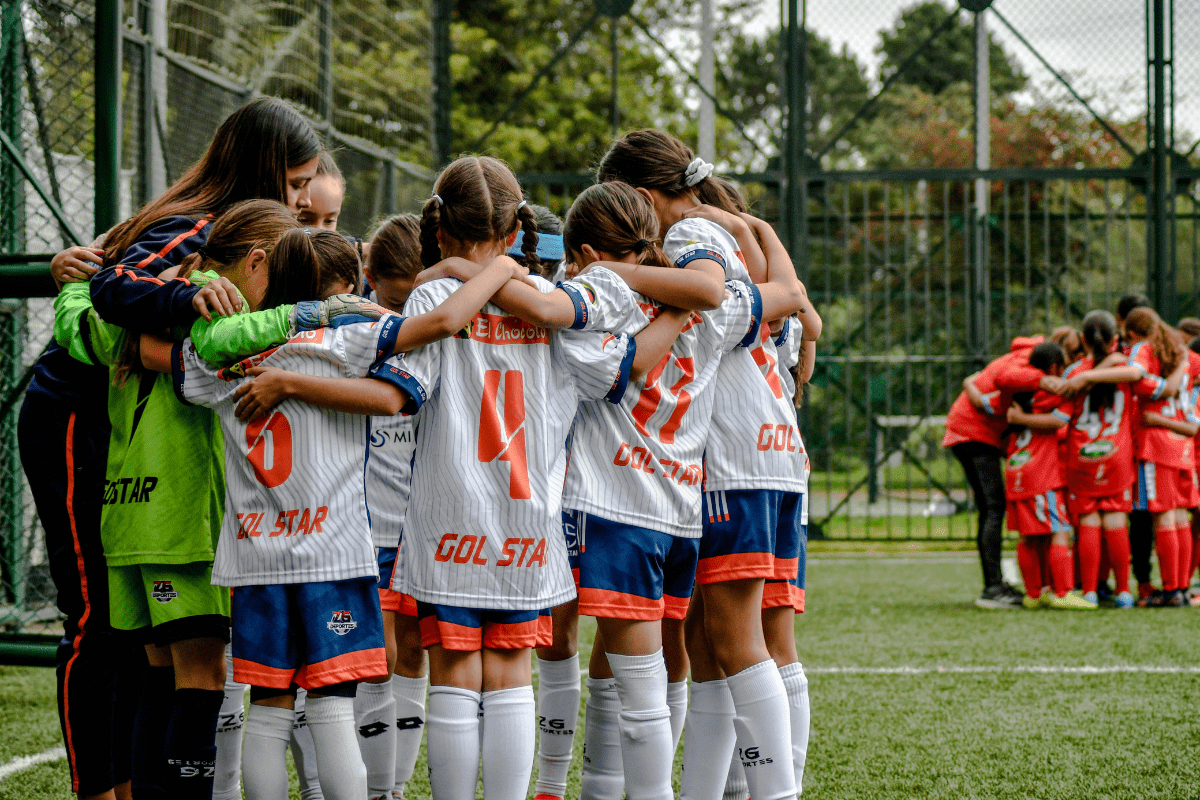Living on the Eastside means you're sitting pretty for Pacific Northwest adventures without the hassle of airport security lines or cross-country road trips. Seattle Magazine readers consistently vote the region's outdoor access as a top quality-of-life factor, and frankly, they're onto something. Whether you're craving alpine lakes that look like they belong in Switzerland, wine tastings that rival Napa, or family adventures that don't require selling a kidney for gas money, remarkable destinations await within a two-hour drive from Bellevue, Redmond, and Kirkland.
Your backyard mountain playground
The Snoqualmie Pass corridor serves as the Eastside's not-so-secret outdoor sanctuary, delivering serious mountain vibes just 45 minutes from your Bellevue office building. This stretch of I-90 opens access to some of Washington's most beloved trails, each offering different rewards for your weekend energy investment.
Snoqualmie Falls: The gateway win
Sometimes the most obvious choice proves the smartest, and Snoqualmie Falls exemplifies this perfectly. The 268-foot waterfall sits just 30 minutes from downtown Bellevue, making it ideal for those Saturday mornings when you want nature but not necessarily a full outdoor expedition. The main parking lot charges $7 for two hours, but the overflow lot remains free if you don't mind a slightly longer walk to the viewpoint.
Here's what most visitors miss: while everyone clusters around the upper observation deck snapping the same Instagram shot, the River Trail below offers better angles and fewer selfie sticks. Winter transforms the falls into a thundering spectacle as Pacific storms dump massive water volumes, creating mist clouds visible from the highway.
Snow Lake: Washington's alpine superstar
Snow Lake attracts over 100,000 hikers annually, making it Washington's most popular alpine destination. The 7-mile roundtrip journey gains 1,800 feet through subalpine forests before opening onto a turquoise lake surrounded by granite peaks that look suspiciously like stock photography.
The challenge isn't the hike itself but the logistics surrounding it. Parking at the Alpental Ski Area fills completely by 9am on summer weekends, forcing late arrivals to park along the highway and add 2+ miles to their day. The solution? Arrive before sunrise or embrace weekday adventures. You'll need a Northwest Forest Pass ($5 daily or $30 annual) for legal parking, though that annual pass pays for itself after just three visits to any Cascade trail requiring permits.
Rattlesnake Ledge: Free parking and views
In an era where popular trails charge for everything including air quality, Rattlesnake Ledge maintains free parking while delivering panoramic views of the Cedar River watershed. With nearly 30,000 reviews on AllTrails, this 3.8-mile trail clearly strikes a chord with Puget Sound hikers seeking accessible adventure.
The 1,175-foot elevation gain spreads gradually over switchbacks designed for sustainable climbing rather than knee-destroying punishment. Pro tip from frequent hikers: tackle the loop counterclockwise to avoid the uphill traffic jams that develop when everyone follows the same route. Weekday visits reduce crowds by 60-70% according to trail counters, transforming a busy weekend slog into a peaceful nature experience.
Mount Si: For when you want to earn it
Mount Si presents serious hikers with an 8-mile roundtrip gaining 3,200 feet, essentially climbing stairs for four hours straight. This isn't a casual stroll, but the payoff justifies the suffering: sweeping views across the Puget Sound region from one of the most recognizable peaks visible from much of the Eastside.
The trail attracts over 100,000 annual visitors who appreciate having their fitness tested by Washington's most accessible challenging summit. A Discover Pass costs $10 daily, though the annual version makes financial sense for anyone planning multiple state park adventures.
Wine country without the airplane ticket
Woodinville Wine Country continues expanding its reputation as the Pacific Northwest's answer to Napa Valley, minus the inflated hotel prices and tourist buses. The region now hosts over 130 wineries and tasting rooms within a 20-30 minute drive from most Eastside cities.
The beauty lies in concentration and accessibility. The Hollywood District clusters numerous tasting rooms within walking distance, eliminating designated driver rotation and parking headaches. Tasting fees typically range from $15-30, though most wineries waive charges with bottle purchases. Here's insider intelligence that wine professionals share: visit Tuesday through Thursday for personalized attention and access to library pours not offered during busy weekends.
Smart wine country strategies:
- Target weekday visits for better service
- Hollywood District for walkable tastings
- Lunch between wineries reduces costs
- Designated driver shuttles available weekends
- Spring/fall weather beats summer crowds
Family adventures that don't break budgets
Remlinger Farms: Where agriculture meets amusement
Remlinger Farms operates as a 350-acre working farm in Carnation, just 28 minutes from Bellevue via scenic back roads that feel worlds away from tech campus traffic. This place figured out the winning formula: combine real farming with gentle amusement park features sized for children who haven't yet developed teenage eye-rolling skills.
The steam train chugs through berry fields and past farm animals, while the petting zoo lets kids experience livestock without committing to rural living. Free parking remains one of the farm's major advantages over Seattle attractions that charge premium rates for basic services. The on-site restaurant serves farm-fresh meals, and parents can sample craft beer while kids explore the arcade that predates smartphone addiction.
Cougar Mountain Zoo: Intimate animal encounters
Adult admission costs $13.50 with children's tickets at $9.50 for this Issaquah gem that proves bigger doesn't always mean better. One parent review captured it perfectly: "all the animals, minus the crowds" that make larger zoos feel like livestock management exercises.
The smaller scale means little legs can explore the entire facility without meltdowns, while the focus on endangered species provides educational value beyond simple entertainment. Daily keeper talks offer insights into animal behavior, and special encounter programs ranging from $140-380 create memorable birthday experiences. Just remember the zoo closes Mondays and Tuesdays, which seems like useful information to know before driving there with excited children.
Alki Beach: Sandy shores without ocean drives
Alki Beach stretches 2.5 miles of sandy shoreline just 45-60 minutes from the Eastside, depending on your relationship with I-405 traffic patterns. The paved path accommodates strollers, bikes, and rollerblades, while first-come fire pits enable evening s'mores sessions during summer months.
Water temperatures hover between 46-56°F year-round, making this decidedly a sandcastle destination rather than a swimming spot for most humans. Multiple restaurants line the beach strip, though parking proves challenging on sunny weekends when half of Seattle apparently has the same brilliant idea. Arrive early or explore side streets off the main drag for better luck.
Premium destinations worth the extra drive
Some adventures justify pushing that two-hour boundary slightly, delivering experiences that transform good weekends into memorable ones. These destinations require more planning and investment but reward travelers with iconic Pacific Northwest moments.
Mount Rainier National Park: The crown jewel
Mount Rainier charges $30 per vehicle for seven-day access, plus a $2 timed entry reservation required May through September for Paradise and other popular areas. Add roughly $28 in gas for the 160-mile roundtrip from Bellevue, and you're investing $60 before purchasing overpriced trail mix at the visitor center.
Yet this investment delivers access to subalpine meadows, glacier views, and hiking options ranging from wheelchair-accessible nature walks to multi-day wilderness expeditions. The timed entry system, while initially annoying, actually improves the experience by preventing the parking lot chaos that plagued previous summers. Reserve your slot weeks in advance for popular summer weekends.
The Paradise area offers the classic Mount Rainier experience with wildflower meadows and glacier viewpoints, while Sunrise provides higher elevation access and typically longer seasons. For families, the Silver Falls area delivers waterfalls and easier trails without the crowds that congregate at more famous locations.
Leavenworth: Bavarian Alps without the passport
Technically 2 hours and 10 minutes from Bellevue via US-2, Leavenworth pushes our boundary but rewards travelers with a unique alpine town experience. The drive covers 130 miles through scenic river valleys that preview the Bavarian architecture awaiting at journey's end.
Colchuck Lake ranks among the region's most spectacular day hikes, though the 9-mile roundtrip requires commitment and high-clearance vehicle access for the final approach road. The reward justifies the effort: Caribbean-blue waters reflecting Dragontail Peak's jagged granite spires create scenery that seems imported from the European Alps.
The town itself offers year-round appeal with Bavarian festivals, German restaurants, and enough kitsch to either charm or horrify depending on your tolerance for themed experiences. Winter transforms the area into a snow sports destination, though weekend ski traffic creates legendary I-90 backups that can double return travel times.
Urban culture that rivals Seattle
Tacoma's museum district: Six institutions within walking distance
Tacoma's Museum District concentrates six world-class cultural institutions just 43 minutes south via I-405, offering urban sophistication without bridge tolls or downtown Seattle parking nightmares. The Museum of Glass captivates visitors with live glassblowing demonstrations in the Hot Shop amphitheater, while the Tacoma Art Museum offers free admission Thursday evenings from 5-8pm.
The Children's Museum operates on a pay-as-you-will model, recognizing that families already invest significant resources in cultural outings. Park free on Sundays along Pacific Avenue, or use the practical approach: free parking at Tacoma Dome Station plus Link Light Rail directly to the museum district.
Boeing Factory tour: Industrial tourism at its finest
The Boeing Everett Factory offers 80-minute tours for $25 inside the world's largest building by volume, where 747s, 777s, and 787 Dreamliners take shape. The facility sits 35-40 minutes north via I-405, though advance booking proves essential as tours frequently sell out weeks ahead.
Photography restrictions apply inside, but watching massive aircraft assembly justifies accepting the limitation. The experience delivers engineering appreciation and Pacific Northwest industrial pride while requiring minimal physical effort, making it perfect for multi-generational outings or rainy day alternatives.
Bainbridge Island: Island life without island time
The Seattle-to-Bainbridge ferry transforms a simple day trip into a scenic 35-minute cruise across Elliott Bay. Walk-on passengers pay $9.25 roundtrip, while bringing your car costs $16.40 plus $5.60 per passenger. Everything worthwhile concentrates within walking distance of the Winslow ferry terminal, from the Bainbridge Island Museum of Art (free admission) to galleries and restaurants along Winslow Way.
Bloedel Reserve deserves the $22 entry fee for 150 acres of botanical gardens featuring Japanese-inspired landscapes and Pacific Northwest native plantings. The reserve limits daily visitors, creating a peaceful experience that contrasts sharply with more crowded regional attractions.
Seasonal spectacles and special occasions
Spring tulip madness in Skagit Valley
The Skagit Valley Tulip Festival explodes across multiple farms around Mount Vernon during April, roughly 1.5-2 hours north of the Eastside. Admission ranges from $16-20 for adults and $8-10 for children depending on which farm you choose and day of the week.
Tulip Town features trolley rides through 6 acres of blooms, while Tulip Valley Farms offers u-pick options alongside farm animals that delight children. The critical detail everyone should know: these remain working farms with real mud. Wear boots, embrace the agricultural reality, and check bloom status before making the drive since peak timing varies yearly based on weather patterns.
Winter alternatives when mountains close
Mountain road closures from November through May redirect adventure seekers toward lower elevation options. The Snoqualmie Valley offers easier trails that remain accessible year-round, while Puget Sound destinations provide storm watching opportunities that transform gray winter days into dramatic experiences.
Urban alternatives gain appeal during darker months. Tacoma's museums provide climate-controlled culture, while Woodinville tasting rooms offer cozy atmospheres for sampling regional wines. The ferry system continues operating through winter storms, though choppy crossings add excitement to island visits.
The economics of adventure
Current gas prices around $4.40 per gallon make distance calculations relevant for budget-conscious adventurers. Washington ranks among the higher-priced fuel states, so shorter trips deliver better value for families managing multiple weekend activities.
Sample day trip budgets:
- Snoqualmie Falls: $11 gas, $7 parking (optional)
- Mount Si: $15 gas, $30 Discover Pass
- Wine country: $8 gas, $60-90 tastings
- Mount Rainier: $28 gas, $32 park fees
- Bainbridge Island: $12 gas, $18 ferry costs
Pass strategies for regular explorers
The Discover Pass increases from $30 to $45 in October 2025, making current purchases a smart investment for anyone planning multiple state park visits. Annual passes cover state parks and DNR lands including Mount Si, Tiger Mountain, and Deception Pass State Park. Many local libraries loan Discover Passes for week-long periods, offering a try-before-you-buy approach to annual commitment.
The America the Beautiful Pass at $80 covers all national parks and federal recreation areas, paying for itself after three visits to Mount Rainier or Olympic National Park. For serious outdoor enthusiasts, both passes combined cost less than most single-day family entertainment options while unlocking year-round access to hundreds of destinations.
Timing strategies that transform experiences
Traffic intelligence for smarter departures
SR 520 bridge tolls reach $4.90 during peak hours for Good To Go! pass holders, adding $10+ to roundtrip costs for routes requiring bridge crossings. I-90 remains free and often proves faster for mountain destinations, while I-405 provides direct access to southern destinations like Mount Rainier and Tacoma.
Friday afternoon departures toward mountain areas can double travel times as commuter traffic merges with weekend recreation traffic. The reverse happens Sunday evenings when everyone returns simultaneously. Smart adventurers depart before 6am or after 7pm on weekdays, or embrace Monday adventures that feel like private trail experiences.
Seasonal windows for optimal experiences
Washington's mountain access follows predictable patterns that reward strategic planning. Lower elevation trails like Snoqualmie Falls and Rattlesnake Ledge remain accessible year-round, though winter conditions require microspikes even on typically easy terrain. High elevation destinations like Mount Rainier's Paradise area often remain snow-covered through June, limiting access during spring months when everyone craves mountain adventures.
Autumn delivers the region's finest hiking weather alongside dramatic larch displays in the North Cascades during early October. This narrow window creates concentrated crowds at destinations like Maple Pass Loop, where golden larches against granite peaks justify the seasonal pilgrimage despite increased competition for parking spaces.
Hidden gems and crowd alternatives
Free urban experiences that deliver
When outdoor plans face weather interference, several free urban alternatives provide quality experiences without admission fees. The Fourth and Madison Building's 7th-floor urban garden offers panoramic city views during weekdays from 8am-6pm, rivaling expensive observation decks. Crystal Mountain's year-round gondola provides Mount Rainier views without park entry fees or timed reservations, though the $25 roundtrip ticket isn't exactly free.
The Ballard Locks combine boat watching with salmon viewing, offering free entertainment that captivates children and adults equally. Timing matters: salmon runs peak during summer and fall, while boat traffic increases on sunny weekends.
Lesser-known outdoor options
While everyone flocks to the same Instagram-famous trails, equally spectacular alternatives receive fraction of the attention. Tiger Mountain's many trail options provide forested hiking just 30 minutes from Bellevue, with multiple difficulty levels and free parking at most trailheads. The West Tiger 3 summit offers views across the Puget Sound region without the crowds that plague Rattlesnake Ledge.
Alternative destinations for crowd-averse adventurers:
- Tiger Mountain: Multiple trails, less crowded
- Issaquah Alps: Network of accessible peaks
- Carkeek Park: Beach access, salmon viewing
- Discovery Park: Seattle's largest urban park
- Deception Pass: Bridge views, island access
Planning your escape rotation
The key to maximizing Eastside location advantages lies in building a rotation of seasonal favorites that prevent adventure fatigue while accommodating changing weather and energy levels. Spring brings tulip festivals and lower elevation wildflowers while high country remains snow-locked. Summer opens alpine access but demands early starts and advance planning for popular destinations.
Develop backup plans for Washington's notoriously unpredictable weather. When mountain fog eliminates views, redirect toward Tacoma's museums or Woodinville's tasting rooms. Rainy day alternatives become essential between October and April, when outdoor adventures require accepting moisture as a constant companion.
Weather-proof backup strategies
Indoor alternatives prevent weather from derailing weekend plans entirely. Woodinville tasting rooms provide cozy atmospheres during winter storms, while Tacoma's museum district offers climate-controlled culture. The Boeing tour operates year-round regardless of conditions, and ferry rides actually become more dramatic during stormy weather for those who appreciate nautical adventures.
Consider activity combinations that hedge weather bets: start with an outdoor morning hike, then transition to indoor afternoon activities if conditions deteriorate. Snoqualmie Falls plus Woodinville wine tasting creates a balanced day mixing nature with culture, while Bainbridge Island combines ferry scenic cruising with walkable town exploration.
Making the most of your two-hour radius
Living between Bellevue, Redmond, and Kirkland positions you at the center of Pacific Northwest adventure opportunities that would require cross-country flights from most American cities. These aren't bucket list destinations demanding extensive vacation planning but Thursday afternoon wine tastings, Saturday morning trail runs, and Sunday ferry rides that transform ordinary weekends into memorable experiences.
The magic happens when you stop thinking about these destinations as special occasion adventures and start incorporating them into regular routines. Washington Trails Association data shows weekday visits reduce crowds by 60-70%, transforming popular trails into peaceful nature experiences for those with flexible schedules.
Smart pass purchases unlock frequent access without recurring costs. That $30 Discover Pass (soon $45) covers Mount Si, Tiger Mountain, and dozens of other state destinations. The Northwest Forest Pass opens Cascade trails including Snow Lake and Franklin Falls. Combined with strategic timing and weather flexibility, these tools transform the Eastside into base camp for year-round Pacific Northwest exploration.
The two-hour radius isn't a limitation but a feature, concentrating world-class destinations within reach while leaving plenty of weekend remaining once you return home. Whether you're seeking alpine challenges, cultural enrichment, family adventures, or simple scenic drives, your next memorable escape starts closer than you think.





